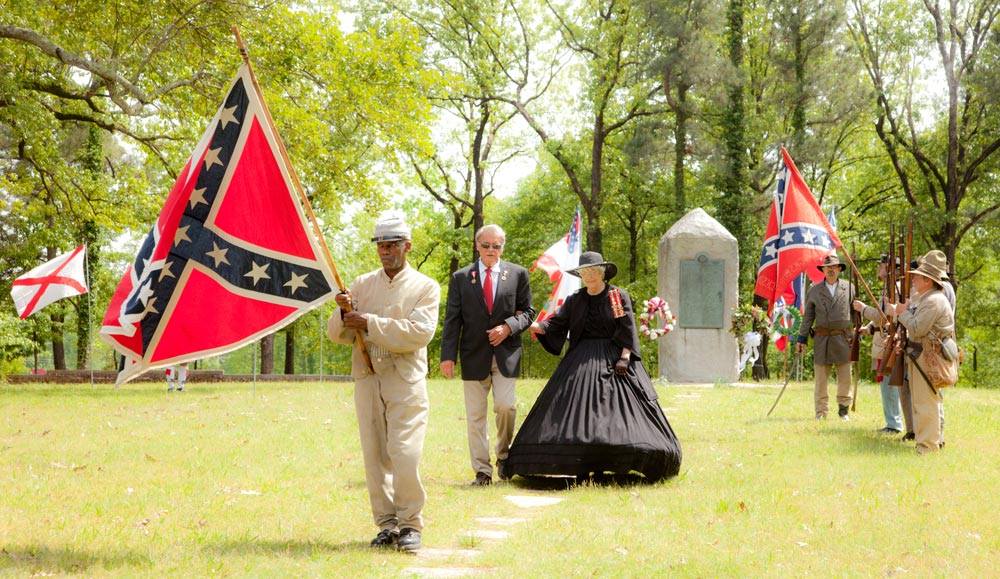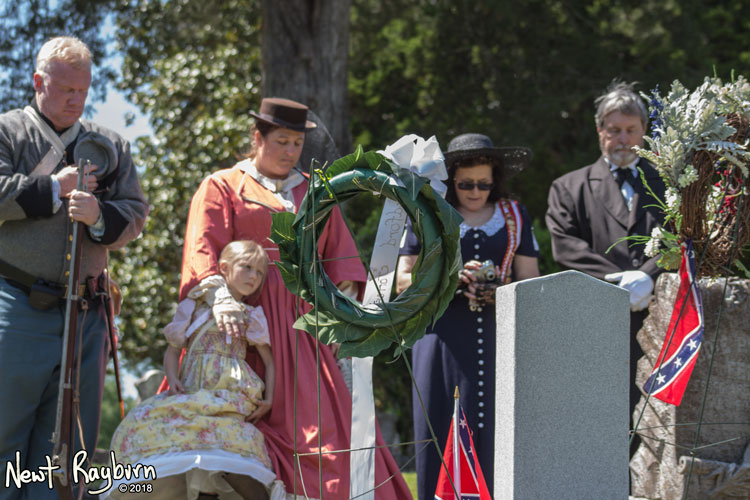
In view of Confederate Heritage Month, a recent graduate of Ole Miss asked for recommendations on unbiased materials she could read about the Confederacy. I responded as follows:
It’s impossible to write a work on any historical subject without including some things, and, because of space limitations, leaving out others. This is itself an unavoidable source of bias. But, I will make a few comments anyway.

The narrative I read about the Civil War in the mainstream media insists that slavery was the only cause of the war. Some people locally insist it wasn’t the cause at all. Instead it was tariffs, which unfairly enriched Northern producers at the expense of Southern consumers. Yet, anyone who knows anything about history knows that every major social change, certainly every war, has more than one cause.
Looking back from today’s perspective, it seems overwhelmingly likely that but for the issue of slavery, the war would not have happened. Still, tariffs, by themselves, had already come close to dissolving the Union in earlier generations.
Thus, tariffs were by no means a trivial issue. The percentage of Southern slaveholders was in low double digits. The percentage of poor Southerners who were subsidizing wealthy Northern industrialists through higher prices on manufactured goods was 100.
Further, as we know from ongoing events in Iraq and Afghanistan today, invasions tend to meet stiff local resistance, no matter what the moral merits of simply surrendering to outside force.
That one side may have more merit does not necessarily mean that the other side has no merit at all. Indeed, this is rarely the case.
In the mainstream media narrative about the cause(s) of the war, I have only seen one oblique, and then immediately dismissed without explanation, reference to Vietnam. To that may be added WWI (a war historians still can’t agree on the reason for), WWII (though much more clear-cut, still not entirely so), Korea, and the aforementioned Afghanistan and Iraq (twice), plus Cambodia, Laos, and myriad other lesser conflicts. Did I mention Syria?
Before the draft ended, just after the Vietnam debacle, if Mississippi had won its independence from the Union, how many young Mississippians — black, white, and brown — would have been forced to go to the other side of the planet to fight and die or be permanently disfigured, physically and/or psychologically? I contend the number would be pretty close to zero.
Now that we have all-volunteer armed services, how many of those who volunteered to fight in Afghanistan in the aftermath of 9/11 would have been sent by any governor of a sovereign Mississippi to Iraq instead? I would guess very close to zero.
Returning to the event that has prompted your query about the Civil War, Confederate Heritage Month, I am reminded of the respective responses to accusations of (supposed) racism and sexism in celebrating Black History Month and Women’s History Month: Every month is, de facto, White History Month and Men’s History Month. Well, by the same token, every month is United States History Month.

It seems that everyone in the US ought to be proud of their own heritage, whatever it may be, unless they are white Southerners. A student at Ole Miss wrote an essay, published in an eminent and widely read national news journal, asserting that the proper attitude white Southerners ought to have about their antebellum heritage is “shame” (the author’s word).
Realistically, though, whether the group be Irish, Italian, Ukrainian, German, Japanese, Chinese, Cambodian, or any other demographic, getting them to unanimously agree to be ashamed of their heritage is a heavy lift. Inevitably, some will insist instead on being proud.
Lady Gaga is proud she was born her way, as well she should be, in my opinion. So, it doesn’t surprise me that so many others are proud to be who they are.
In direct answer to your query about a book on the subject of the Civil War, I highly recommend Mary Chesnut’s Diary, a link to which is pasted below. Among her many pointed observations, she notes near the end of the war that notwithstanding that the North “despises” the South for being “iniquitous,” the North has enlisted millions, and spent billions, to keep the South from leaving.
Some half-century earlier, a famous Southerner wrote the following in a letter to a confidant:
“[My views] on the subject of slavery of negroes have long since been in possession of the public, and time has only served to give them stronger root. The love of justice and the love of country plead equally the cause of these people, and it is a moral reproach to us that they should have pleaded it so long in vain, and should have produced not a single effort, nay I fear not much serious willingness to relieve them & ourselves from our present condition of moral & political reprobation….
“I had always hoped that the younger generation receiving their early impressions after the flame of liberty had been kindled in every breast, & had become as it were the vital spirit of every American, that the generous temperament of youth, analogous to the motion of their blood, and above the suggestions of avarice, would have sympathized with oppression wherever found, and proved their love of liberty beyond their own share of it…..
“Yet the hour of emancipation is advancing, in the march of time. It will come…..
“This enterprise is for the young; for those who can follow it up, and bear it through to its consummation.”
(Thomas Jefferson, letter to Edward Coles, 25 August, 1814)
http://docsouth.unc.edu/southlit/chesnut/maryches.html ![]()
Written by Gaetano Catelli. Photographs by Gaetano Catelli.


